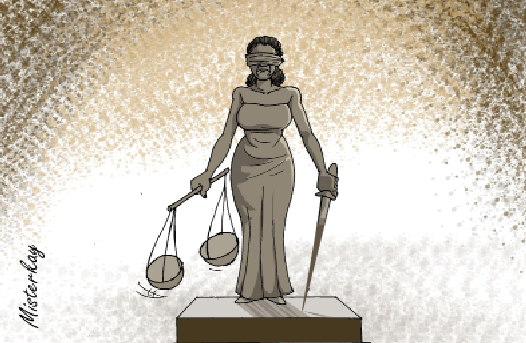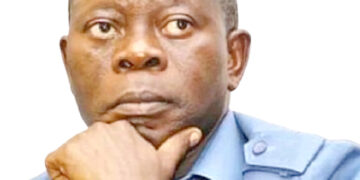There was a moment during the state capture years of South African president Jacob Zuma’s term in office (2009 to 2018) when the veil finally slipped. There had been quiet rumblings against the country’s constitution for many years. But now a senior figure in the ruling African National Congress – its chief whip in the National Assembly, Mathole Motshekga – gave public expression to the notion that when judges overturned decisions of the government they were undermining democracy by thwarting the will of the majority.
As I watched a 2014 parliamentary ad hoc committee debate the Public Protector’s report on spending for Zuma’s private home, I realised that this might be a critical time for the notion of constitutionalism in modern South Africa.
The parliamentary committee’s work was to give effect to the findings and recommendations of the Public Protector.
If the view expressed by Motshekga – known in academic circles as the counter-majoritarian dilemma – were to gain wider currency, South Africa’s constitution would be weakened. Arguments in favour of a return to parliamentary sovereignty (of the apartheid era) might gain momentum. Without the checks and balances of the constitution, the scope for abuse of executive power would increase drastically. The human rights advances of the post-1994 era could be rolled back.
As I watched the proceedings of the ad hoc committee, I heard Motshekga ask why the views of the majority party in parliament should be subordinate to an unelected Public Protector.
His rhetorical question went to the heart of South Africa’s constitutional journey; it reflected how much the project to establish the principle of constitutionalism remained contested.
In the decade since Motshekga posed his question, the checks and balances envisaged under the constitution have been “battle-hardened” from the litigation brought during the Zuma era. And in my view constitutionalism has, so far, not only prevailed but held the line against ruthless attacks on South Africa’s democracy. This view is informed by my more than 30 years of scholarly research and writing, which has focused on issues of separation of powers, and on the constitutionally mandated oversight role of parliament.
Holding the line
The answer to Motshekga’s question, the Constitutional Court later found, is that it’s because the Public Protector is a creature of the constitution, with constitutional authority. To ignore the Public Protector’s findings is to ignore the constitution.
In essence, the recommendations of the Public Protector are binding precisely because of that constitutional authority. The responsibility of parliament is not to contest the recommendations but to help give effect to them.
To do so, however, would have gone against the wishes of the then president, Zuma. We now know he was at the centre of a systematic attack on the democratic state, commonly referred to as “state capture”.
He also wanted to avoid being held to account for his looting of state resources, in this case to pay for unlawful “security” upgrades to his private homestead.
In a seminal judgment in 2016, the Constitutional Court began with a statement about constitutionalism:
One of the crucial elements of our constitutional vision is to make a decisive break from the unchecked abuse of State power and resources that was virtually institutionalised during the apartheid era. To achieve this goal, we adopted accountability, the rule of law and the supremacy of the Constitution as values of our constitutional democracy. For this reason, public office-bearers ignore their constitutional obligations at their peril. This is so because constitutionalism, accountability and the rule of law constitute the sharp and mighty sword that stands ready to chop the ugly head of impunity off its stiffened neck.
At that point, the opposition Economic Freedom Fighters (EFF) took up the cudgels of the constitution in parliament with a crisp slogan directed at Zuma: “Pay back the money!”.
In a rare moment of unity, the opposition withdrew from the parliamentary committee process and held a media conference in defence of the constitution.
It was a key moment in the fight back against state capture and in support of the constitution, accountability and the very idea of constitutionalism.
Hence, the question of whether the constitution should continue to be supreme – fundamental to the idea of “constitutionalism” – became a public as well as a political issue.
With hindsight it seems helpful that the issue came to the surface and was confronted.
Zuma’s impropriety enabled important parts of the constitution to be tested and the notion of a constitutional democracy to be debated. As Zuma was ousted from power in February 2018, and the Zondo Commission into corruption wrote chapter and verse about the state capture project, the idea of constitutionalism seemed to be intact.
But the issue has not gone away.
The constitution under scrutiny
Advocate Tembeka Ngcukaitobi and Dan Mafora, a researcher at the rights organisation Council for the Advancement of the South African Constitution (Casac), have been willing to confront the arguments against constitutionalism that continue to circulate.
Mafora’s 2023 book Capture in the Court engages the ascendant anti-constitutionalism of our present moment. Rhetoric that the Constitution has failed or is an obstacle to freedom, economic or otherwise, is flowering everywhere.
Like Mafora, Ngcukaitobi argues that if we are to take seriously this populist attack and not be dismissive, we need to destabilise these arguments rationally through deep research and analysis.
Ngcukaitobi set out the main grounds for attacks against the constitution:it has held back socio-economic transformation, especially land reform it is a “Eurocentric” import imposed on Africans it is an unjustified constraint on democratic power.
He then dismantled them one by one.
Equally important is the work of historians such as Andre Odendaal. He looks back to the days when the idea of a constitutional democracy was agreed within the ranks of the ANC. In his book Dear Comrade President: Oliver Tambo and the Foundations of South Africa’s Constitution, Odendaal dissects the historical origins of the constitution. He homes in on some of the key decision-making processes, most particularly the work of the constitutional committee of the ANC during the 1980s.
The details presented in the book underline the homegrown origins and essence of the Constitution.
The ANC leadership, including its then leaders Oliver Tambo and, later, Nelson Mandela, were fully in support of a constitutional democracy. They saw it as a way to protect rights and prevent authoritarian rule.
Mandela accepted the rule of law as president, even when decisions went against him and his government.
Odendaal’s work provides an important historical anchor in a turbulent and divisive discourse. In this, constitutionalism will be vulnerable to attack as long as poverty, inequality and unemployment stalk the land. The cry for more executive power, unconstrained by the constitution – a scapegoat for government failure – will rise repeatedly.
The constitution and the principle of constitutionalism will continue to be politically contested territory.
So far it’s held. Mandela would be pleased.
– Calland is a partner in political risk consultancy, The Paternoster Group, and is a member of the Advisory Council of the Council for the Advancement of the South African Constitution (CASAC)





